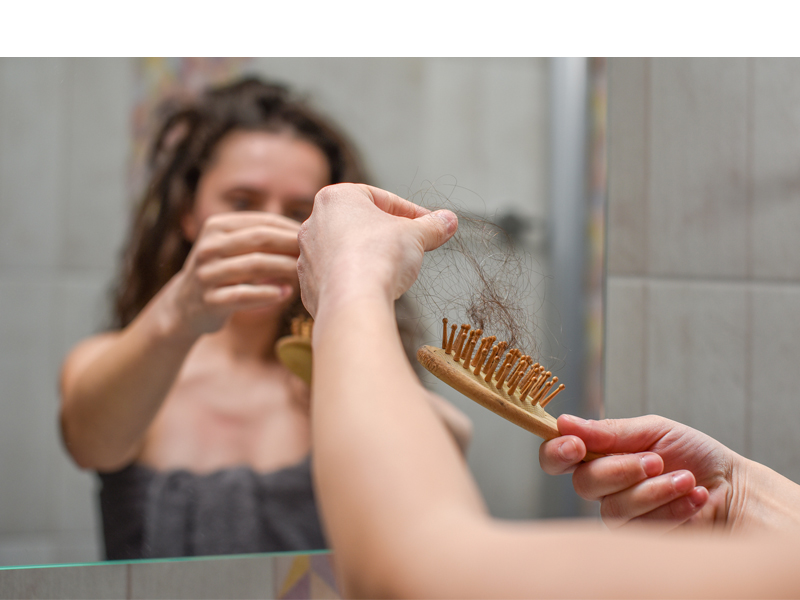5 hair loss myths debunked
Hair loss can be anxiety-inducing and it does not help with so much misleading information out there. We set straight some of the most common myths.
Noticing clumps of hair coming out in the shower or on your pillow can be confronting, however House of Wellness TV resident GP Dr Nick Carr says it is important to remember there is no single cause of hair loss, and it’s not always permanent.
Hair loss can be hereditary, hormonal, a result of medical treatment, or certain health conditions.
We examine some common misconceptions around hair loss.
- Stressed out: Are you suffering pandemic-related hair loss?
MYTH: Hair loss is only a problem for men
Many women also experience hair thinning or loss, with around 49 per cent of females affected at some point in their lives.
Female pattern hair loss is the most common hair loss disorder in women.
Many women experience postpartum hair loss for six months to a year after giving birth, due to hormonal changes.
Thinning locks generally get worse after menopause.
MYTH: Hair loss is permanent
According to Dr Carr, hair loss could simply be a phenomenon called Telogen Effluvium, which is temporary hair loss due to:
- stress
- illness
- physical trauma
- hormonal changes
- medication
- nutritional deficiencies
“Telogen Effluvium triggers a higher percentage of your hair follicles to go into the resting phase at the same time, leading to the thinning of our hair,” Dr Carr says.
“Don’t worry, things will get better without any treatment required.”
MYTH: Hair loss comes from your mother’s side of the family
Before you scurry off to check old photos of your grandparents’ hairlines, take a breath and relax.
“It’s sometimes said it’s all the fault of your maternal grandfather,” Dr Carr says.
“But your genetics are actually more complicated than that, and it’s more likely that your father’s genetics play a role, than your grandparents.”
MYTH: Diet has no impact on hair
What you eat plays an important role in the health of your hair.
In fact, nutritional deficiencies can impact hair structure and growth.
Iron deficiency is the most common nutrient deficiency in the world and can cause hair loss.
One study found the Mediterranean diet contains anti-inflammatory nutrients that may promote hair health and growth in both male and female pattern baldness cases.
- Luscious locks: 17 foods that will give you better hair
MYTH 5: Bald men are more virile than men with hair
Jason Statham, Tyrese Gibson and Dwayne “The Rock”Johnson prove it does not take a full head of hair to be considered masculine.
But a recent Australian study found bald men are no more virile than their well thatched contemporaries.
What can you do about hair loss?
Dr Carr recommends patients start with a visit to their GP.
“There’s lotions and pills that you can take, but they only work while you’re using them,” Dr Carr says.
“There’s also the option of getting a hair transplant, which is pretty good these days, but it isn’t cheap.”
For more expert health advice and practical strategies to improve your lifestyle, tune in to House of Wellness TV, Fridays at 2pm and Sundays at 12pm, on Channel 7.
Written by Charlotte Brundrett.




